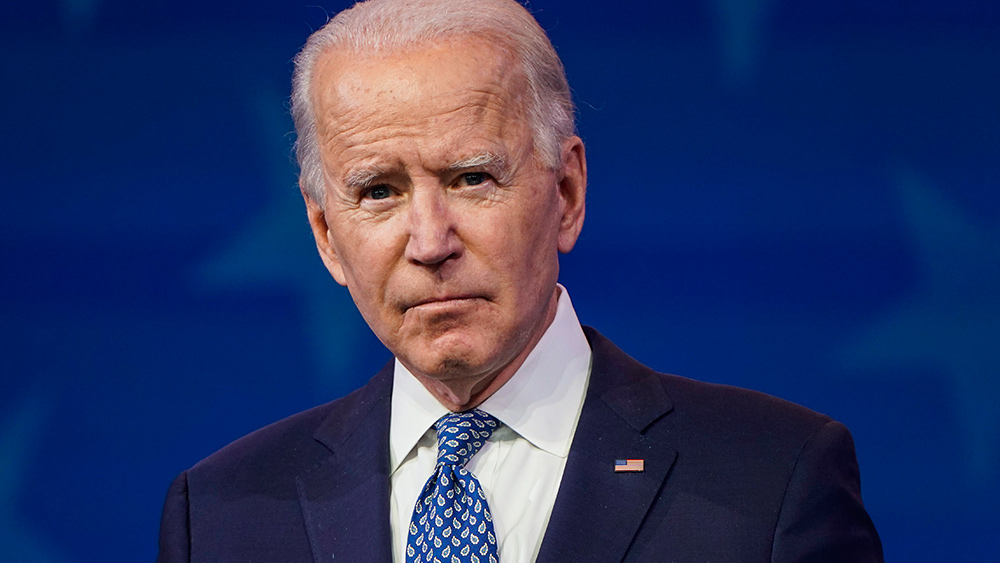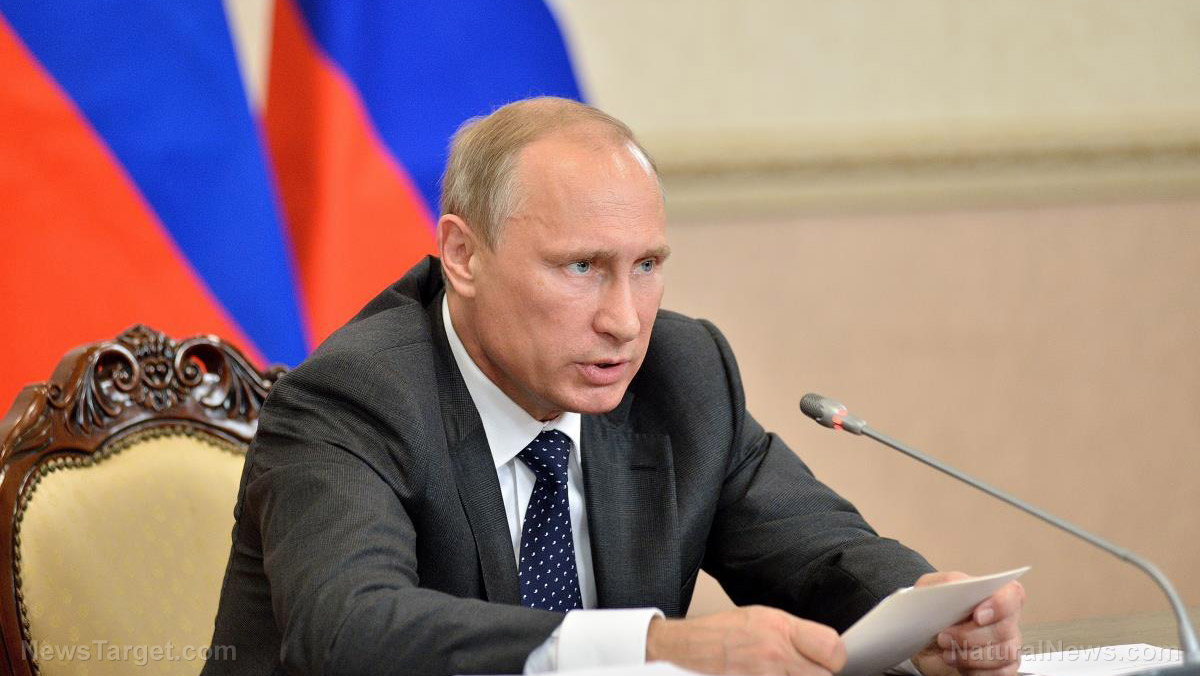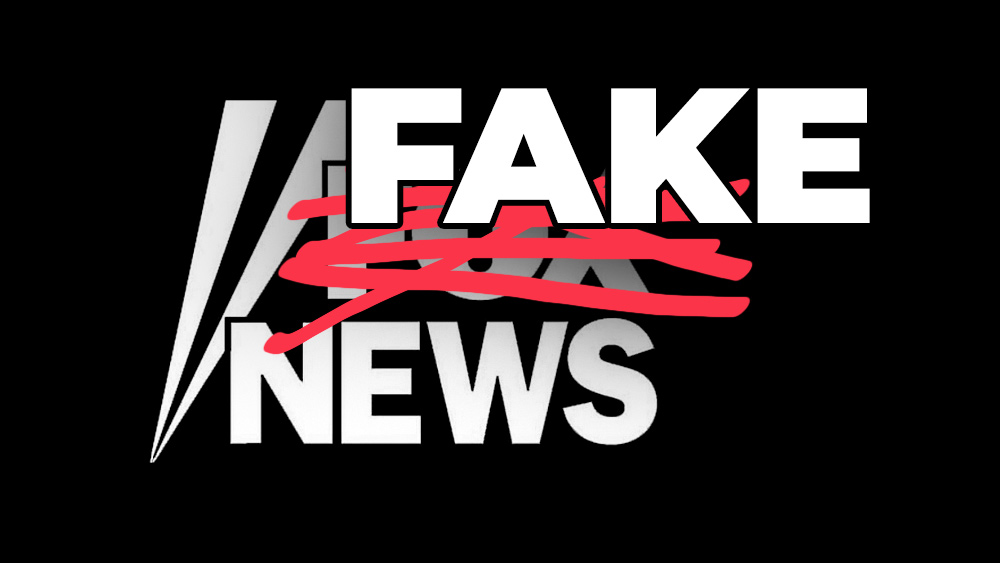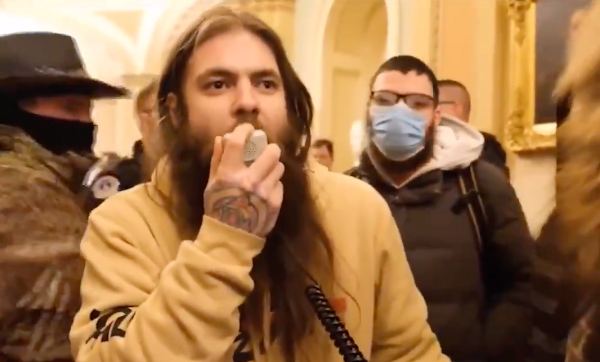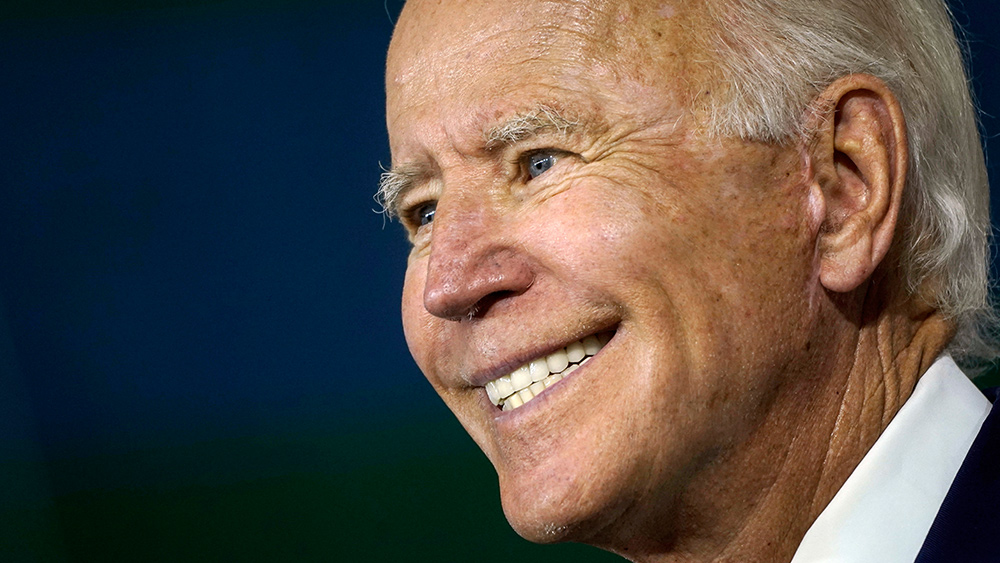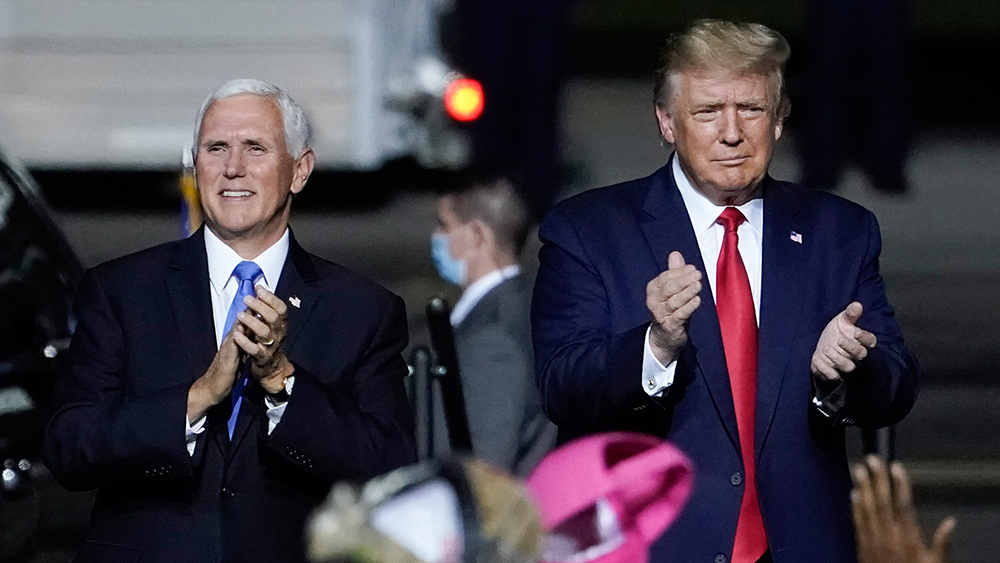It’s time we get answers about the FBI’s involvement in the Oklahoma City bombing
04/28/2022 / By News Editors

This past week marked the 27th anniversary of the Oklahoma City bombing. As the worst terrorist act committed on U.S. soil at the time, we all know the reported facts of the horrific event well: a 27-year-old Desert Storm-vet, Timothy McVeigh, acting with minimal help from Terry Nichols and Michael Fortier, detonated a 7,000-pound fertilizer bomb from a parked Ryder truck outside the federal Alfred P. Murrah building, killing 168 people, 19 of them children.
(Article by John Kline republished from LibertarianInstitute.org)
Two years later, in 1997, McVeigh was convicted of “Using a weapon of mass destruction resulting in death,” among other federal charges. For a time, he was held on the same cell block as the Unabomber and WTC-bomber Ramzi Yousef (who tried to convert him to Islam), before being put to death by lethal injection in 2001.
There is much we still don’t know about the case, however. Thanks to years of heroic work by people like Salt Lake City-based attorney Jesse Trentadue, writer and researcher J.M. Berger, and independent investigative reporter Wendy S. Painting, the American public is slowly learning more and more key (and disturbing) facts about the case. Facts involving the FBI’s possible incitement of McVeigh and the subsequent cover-up of these facts by Newsweek magazine.
FBI incitement is more topical than ever, of course. Reports of the FBI being involved in Michigan governor Gretchen Whitmer’s kidnapping plot and of FBI agents and assets being involved in the January 6th events has collapsed whatever level of trust the public had with federal law enforcement, not to mention the mainstream media whose related coverage rarely digs deeper than the government’s official line.
What other crimes have been committed or conspiracies planned, the public wonders, where the initial momentum was actually created by the FBI? How much have FBI infiltrators pushed constitutionally protected “heated talk” into the unlawful planning and execution of deadly crimes? To what extent has the FBI been, as the saying goes, arsonists posing as firefighters? These are especially important questions when it comes to the OKC bombing.
Operation PATCON
As most know, the FBI and other law enforcement agencies have conducted surveillance and infiltration operations against right-wing groups for decades. Chief among them being the “Patriotic Conspiracy” or “PATCON” operation. Despite its official ending in late 1993 (although some say it was carried forward in some form), PATCON only became public in 2007 thanks to a public records request.
Partly citing internal FBI documents, Painting in her explosive 2016 book about PATCON and McVeigh, describes how the former’s secret operatives and paid informers “were given license to engage in provocateur activities and instructed to make known their willingness to commit violence and advocate for the violent overthrow of the U.S. government.”1 She quotes one informer who went public about the operation, John Matthews, saying he realized that although initially told “the objective was to infiltrate and monitor,” he would later come to understand that its real objective was to “to infiltrate and incite.”2 This, says Matthews, included providing “the ideas, detailed instructions, and even live C4 explosives and automatic weapons to targeted individuals as a way of entrapping them into terrorist plots, so the FBI could capitalize on foiled and actualized plots.”3 According to Trentadue, through PATCON, the FBI was actually trying to sow a full-on rebellion.
While the FBI has indeed infiltrated hard-left and Islamic groups in the past, the extent and complete failure of the FBI’s overreach when it comes to right-wing groups (which diversely included pro-gun, ultra-libertarian, survivalist, and white racist or advocacy groups) makes this area especially alarming. For instance, there was just one minor conviction over stolen military night-vision goggles that was ever made through PATCON, and it relied on army, not FBI, intelligence. As Oklahoma City journalist J.D. Cash said about PATCON and certain precursor programs of the 1980s, “there isn’t a neo-Nazi or racist group in the country that isn’t operationally controlled by the FBI.” This seems to concur with what a former young Aryan Nation-member told Painting for her book4:
It was well known that at any Aryan Nation event, in a crowd of 300 people, there’d be at least 30 undercover federal agents in attendance to monitor us, and another third of the crowd were informants…It was rampant, just like cops at a Grateful Dead show trying to sell people LSD.
One of those assets was Vietnam War veteran John Matthews. Up until 1986, the government had been supporting U.S. civilian groups conducting operations in Nicaragua for anti-communist contra forces; a cause which Matthews chose to serve. When such efforts turned into a political scandal, however, the government broke-off ties with these groups and refused to help its members. This included people like Matthews’ fellow soldier Tom Posey who would later be indicted on weapons-smuggling charges.5 While he beat the rap, Posey felt cheated and shifted his efforts to anti-U.S. government organizing. When he revealed plans to break into a federal armory, however, Matthews contacted the FBI, establishing a relationship with law enforcement that led him to infiltrate over 20 militia, libertarian, gun-rights, and racist groups over a 20-year period.
Matthews, who has long been suffering from an Agent-Orange-related cancer, is key to what understanding we have about PATCON’s connection to the OKC bombing. In the early nineties, Matthews was assigned to attend a PATCON-infiltrated, militia-training camp in Texas. While there, he met Timothy McVeigh. After the bombing and when McVeigh was arrested, Matthews immediately recognized him and called his FBI handler, Don Jarrett, to tell him this was the same man he saw at the Texas training camp. Jarrett assured Matthews they knew this already and told him to “forget about it.”
In interviews with Painting, Matthews says he was disturbed by this for a few reasons, a major one being, she paraphrases, that “if they were watching McVeigh and friends back then, they had likely continued watching them throughout the bombing plot.”6 “I felt Don knew more about this,” he said elsewhere.
What other items he knew may have been what came out later in Trentadue’s public records suit against the FBI. Dozens of witnesses to the bombing had apparently reported to police and the FBI they had seen someone in the passenger side of McVeigh’s truck while parked outside the Murrah building. Other witnesses reported seeing McVeigh with several people at his motel the night before, including someone sitting at some point behind the wheel of the truck—And Nichols himself (who was in Kansas when the bombing took place) told journalists in 2007 that FBI provocateurs had lent their support to McVeigh’s plans.7
Also disturbingly, using a fertilizer truck to blow up a federal building had been an idea Matthews had actually heard a few times before, including from suspected FBI infiltrators. For instance, he had heard it raised by two militia members he met who later became part of a busted plot to rob a bank, but who never got arrested, let alone jailed for it.
All of this would seem to point to the OKC bombing being something like 2010’s Operation Fast and Furious, in which the FBI intentionally put guns into the hands of criminals, but failed to close the loop leading to a border agent being killed by a Mexican cartel. Was OKC a similar ‘gunwalking case gone awry’? Only one, far, far deadlier? Someone who McVeigh contacted two weeks before the bombing, Andy Strassmeir, later told a journalist it is possible the FBI was “going to arrest McVeigh at the site with the bomb in hand, but he didn’t come at the right time.” “[M]aybe he changed the time”, he said, “you never know with people who are so unreliable.”8
Newsweek’s Complicity
In 2011, wishing to tell his story before he died, Matthews was put in touch with former Associated Press-writer and then-editor of Newsweek, John Solomon. At the time, Newsweek was still foremost in the U.S. media field, coming in second in circulation only to Time magazine. It was an important and respected news source. Over months, Solomon and article-author Ross Schneiderman worked with Matthews and other sources, including former FBI officials, to confirm everything he told them about the murky workings of PATCON, including the unanswered questions about its operatives’ possible involvement in the OKC bombing.
Enter Newsweek managing editor, Tina Brown. Above the heads of Solomon and Schneiderman, Brown (who left in 2013 and has been blamed for the periodical’s collapse) took what may have been a Pulitzer-worthy piece of journalism and cut away virtually all detail that could directly or indirectly impugn the government for the fallout of its PATCON operations. In the process, she reduced the original 7,000-word draft (found here) down to a mere 4,000 words (found here). As the since-defunct Examiner detailed at the time, all of the aforementioned suspicions Matthews aired about the FBI’s hand in the OKC bombing were cut.
Brown’s puzzling decision had real consequences for Matthews. As Painting recounts in her book, the dying Matthews had taken a lot of risk by coming forward. He was now Newsweek’s cover story, but for reasons that had been omitted. Now, he was still a target but “for no good reason and he regretted coming forward.”9
More broadly, by keeping such information away from the public, Brown was confirming the existence of a state-media axis in America. While examples of such direct state-interventions into our otherwise free media system are rare (although certainly plentiful enough), media analysts like Noam Chomsky have long posited that, yes, news outlets do profit off the circulation of their stories and are thus incentivized to objectively report on events potentially embarrassing to the powerful elite. But, the big media houses still need government access and wish to maintain good relations with major power centers; hence, their occasional compliance with direct government demands—One might add the promise of future political jobs as an incentive for compliance or, in cases such as this where right-wing groups were clearly being mistreated, plain old liberal media bias (consider, for instance, the fairly wide–reporting on the FBI’s infiltration of Islamic extremist groups).
It seems without a doubt that the FBI did get to Brown. At the time Matthews approached Newsweek, Attorney General Eric Holder’s Operation Fast and Furious-debacle was still in the news. How could the Obama Administration handle yet another and far bigger scandal involving the FBI helping dangerous people do harm against innocent Americans?
More Alarming Questions about FBI Conduct
Elsewhere, the FBI has demonstrated a serious interest in keeping any questions about the OKC bombing firmly under wraps. When Matthews was slated to testify in Trentadue’s 2014 public records case over the release of Murrah building surveillance footage, his fear of retaliation led to the judge allowing him to testify at a secret location by video—Trentadue thought what Matthews had witnessed while a PATCON operative would help provide a motive for what had become the FBI’s ongoing, unlawful refusal to provide the footage under public records law.
And despite the judge’s precautions, Matthews’s testimony still never took place. At the last minute, Matthews was supposedly threatened with having his VA medical benefits cut off and told to “stand down” by Jarrett and another FBI agent, Adam Quirk. Such a rank case of witness tampering, in fact, led to the judge ordering the FBI to reveal what exactly they had communicated to Matthews; an investigation that has been strangely ongoing since 2015.
At the heart of Trentadue’s marathon public records case certainly has the FBI worried. Someone who did manage to testify early on in the case was an Oklahoma police officer and first responder to the OKC bombing. He told the court he witnessed the FBI actually stop the beginning of the recovery process while victims were still under piles of rubble in order to remove a surveillance camera from the Murrah building. Some believe the camera would have recorded anyone else besides McVeigh who left the truck after it was parked and, in fact, did so.
Finally, there’s the questions about the FBI’s conduct vis-à-vis Trentadue himself. Why Trentadue got involved with the OKC case is because six weeks after the bombing, his brother Kenneth, another war vet, was taken into custody after a traffic incident triggered a parole violation relating to a minor event from years previous. Soon after, he was found hanging in a cell of a federal detention center.
Photos released to Trentadue following a subsequent lawsuit against the federal Bureau of Prisons, however, showed his brother’s throat having been cut and his body covered in bruises—authorities had apparently tried to cover his wounds with make-up before releasing it to Kenneth’s family. The theory behind his death is, having shared a close resemblance with someone called Richard Guthrie, a white supremacist who the FBI thought had information about the OKC bombing, Kenneth was mistaken as Guthrie and taken in by the FBI for interrogation. McVeigh himself called and advised Trentadue of this, telling him he heard that the FBI had indeed mistaken Kenneth for Guthrie and that his death was the result of a botched interrogation session.
Adding to suspicions, the DOJ formed a special team to handle media inquiries and the Trentadue family’s immediate requests for information. It apparently obstructed and delayed the Trentadue’s right to know what happened to Kenneth in every way it could, even when it came to releasing his corpse. Who happened to be the head of this operation (dubbed internally as “the Trentadue Mission”)?10 Then-Deputy Attorney General, Eric Holder.
Finally, there are the other related and mysterious deaths. After Guthrie himself was arrested, he told the LA Times he had “a couple grand juries to talk to” about what really happened with the OKC bombing, and was also later found hanging in his cell.11
And later in 1999, a supposed inmate and witness to Kenneth’s murder, Alden Gillis Baker, threatened to come forward about what he saw. He too was later found hanging in his cell.12
Conclusion
The details surrounding the OKC bombing show it to have all the elements of a “perfect,” post-war American tragedy: Vietnam vets disrespected by the liberal-media class and tossed aside by a government they loyally served; an unhinged federal bureaucracy using its sprawling resources to violate the civil rights of poor and ignored Americans; and, a state-liberal media-axis willing to cover up for government when the “cause” was right.
And consider the following. Even if we ignore the aforementioned evidence about the FBI’s hand in the OKC bombing, remember that the twin motivations for McVeigh’s crimes were Waco and Ruby Ridge—McVeigh chose April 19 as his bombing date because it was the same day as the Waco massacre two years previous. Matthews has actually expressed the view that both massacres had PATCON fingerprints all over them. That’s certainly the case with Ruby Ridge. There, a federal agent/infiltrator pushed former Green Beret Randy Weaver into selling him an illegal sawed-off shotgun. This led to his attempted arrest and an eventual standoff, which then led to the shooting deaths of his 14-year-son by federal marshals and his unarmed wife (baby in hand) by an FBI sniper.
In public and in private correspondence, McVeigh tore into the federal government over these events, expressing fear of a state that was at war with its own citizens. Without federal law enforcement acting so heinously in these events, it’s likely McVeigh would not have carried out the crime that he did.
Further, these rank FBI abuses ironically pushed “right-wing terror groups” to become the threat we were warned about all along. As the original Newsweek article rightly said about Ruby Ridge, the FBI’s conduct “quickly galvanized the radical right like never before” with talks between “various white supremacists, Neo-Nazis and anti-government groups…about joining forces…quickly turn[ing] to action.”
And as Painting writes, even more absurd perhaps, Ruby Ridge was used by federal law enforcement as a justification for increased PATCON resources and investigatory powers.13
So, we have FBI abuses leading to organized rage and resistance, which is then given even more momentum by FBI infiltration and incitement. And with the help of a media sphere that refuses to do its job, all of this works to amp up yet more fear, anxiety and division among the public. It’s a spinning wheel which loyal, patriotic Americans never asked for and certainly want off of.
While we should certainly hope these allegations can be explained away, it’s high-time the OKC victims and the American people generally get the transparency they deserve about what really happened that fateful day.
Read More at: LibertarianInstitute.org
Submit a correction >>
Tagged Under:
big government, conspiracy, corruption, crime, deception, deep state, domestic terrorism, false-flag, FBI, Government Slaves, insanity, mainstream media, news cartels, Newsweek, Oklahoma City bombing, PATCON, proapganda, traitors, treason, Twisted
This article may contain statements that reflect the opinion of the author
RECENT NEWS & ARTICLES
COPYRIGHT © 2017 FALSE FLAG NEWS





